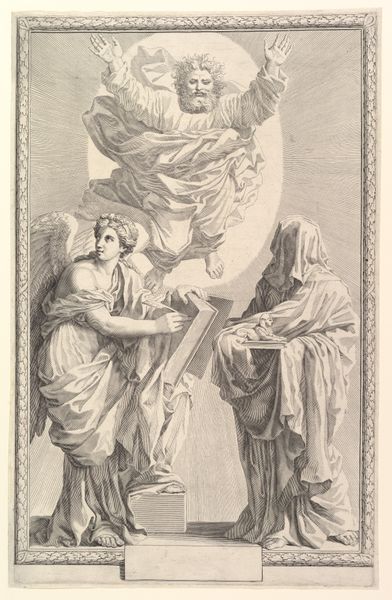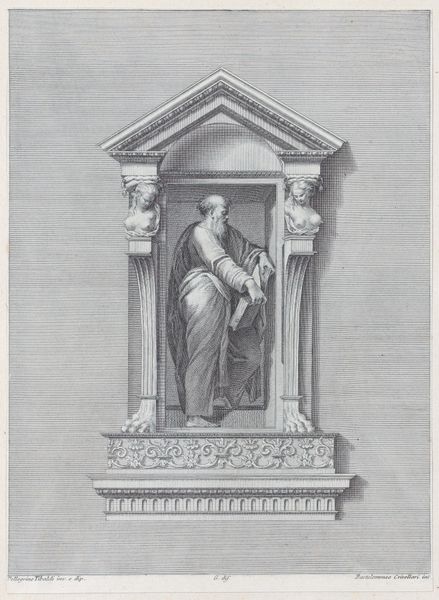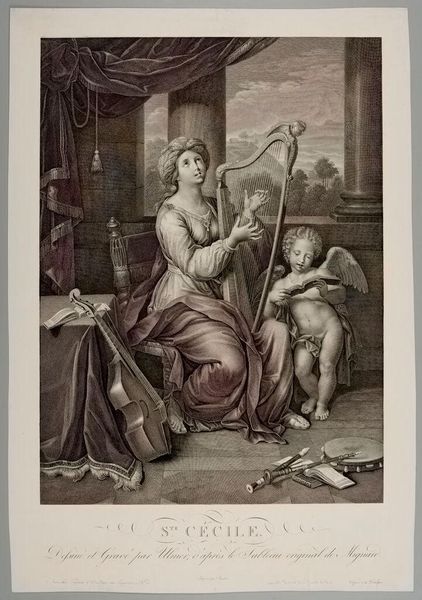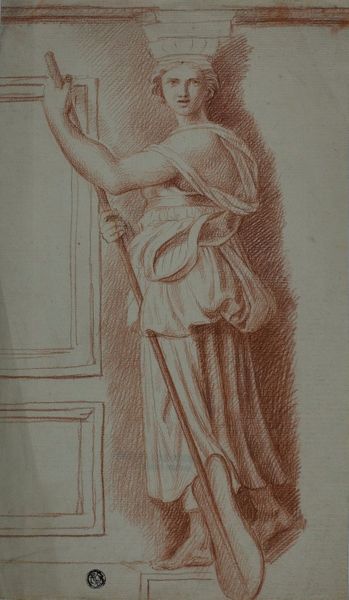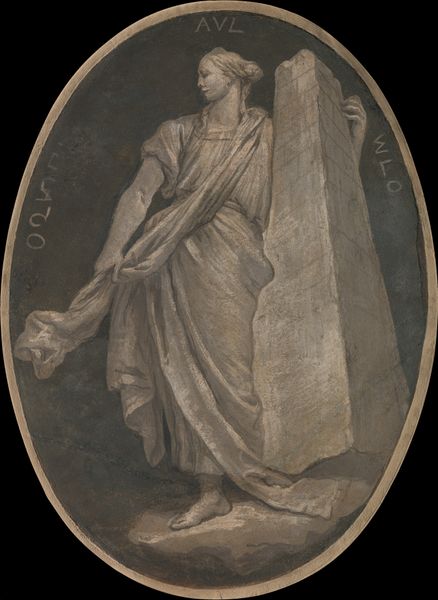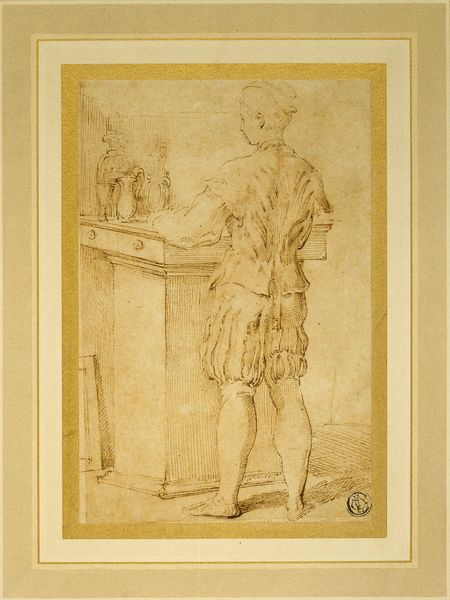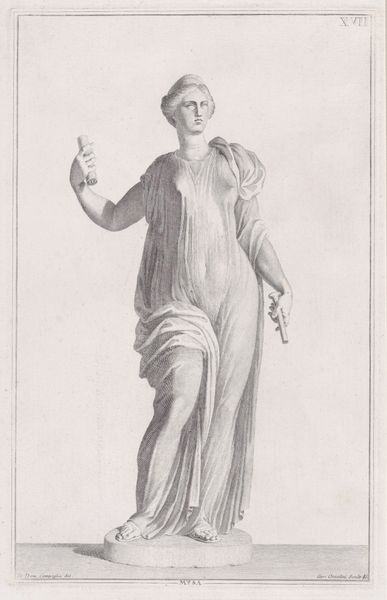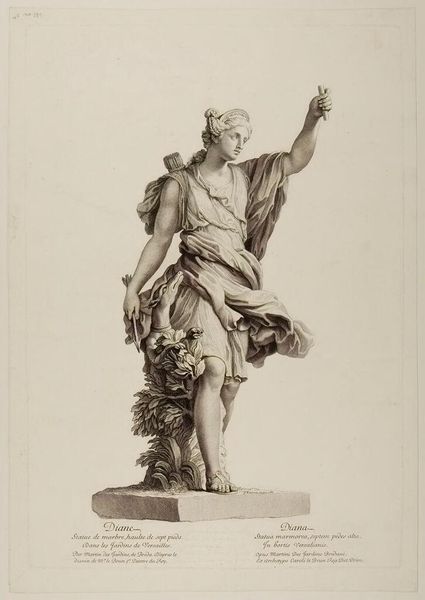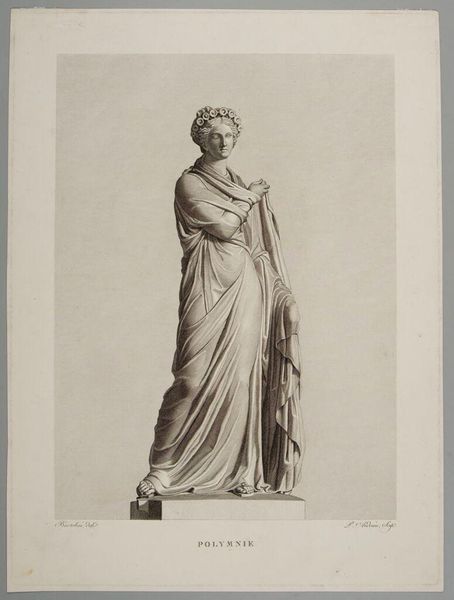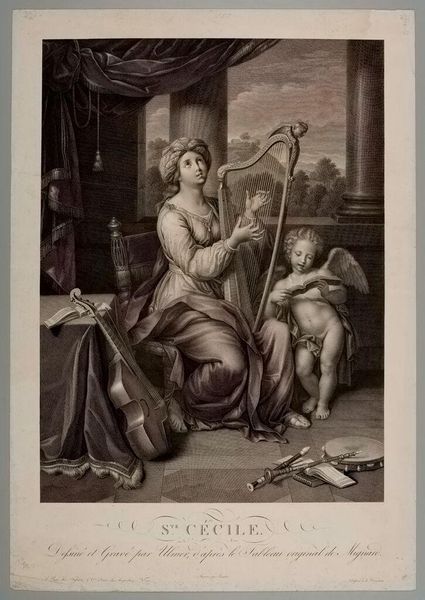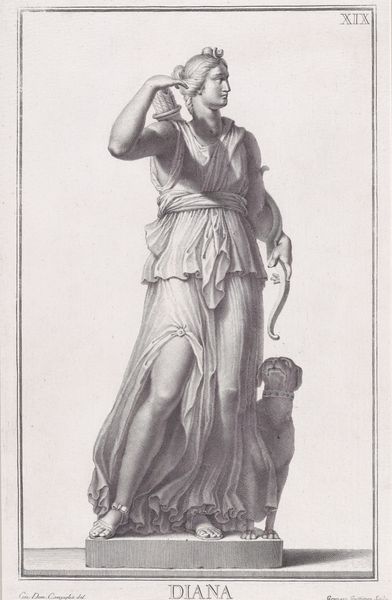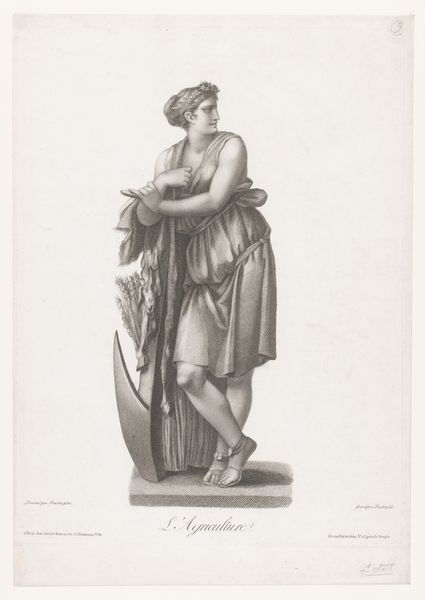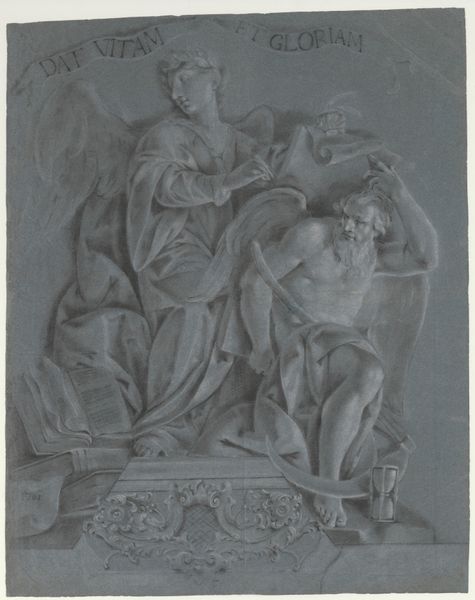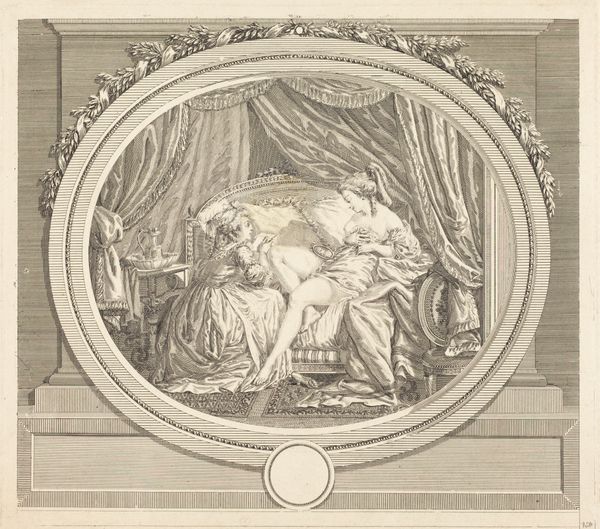
print, engraving
#
portrait
#
neoclacissism
# print
#
charcoal drawing
#
engraving
#
portrait art
Dimensions: 580 mm (height) x 420 mm (width) (brutto)
Editor: Here we have Jean Jacques Flipart’s "'La jeune Corinthienne'," a print from the mid-1760s. I'm immediately struck by the almost photographic quality of the engraving, its Neoclassical stillness... What stands out to you in terms of its historical context? Curator: The "photographic quality," as you call it, is very much a part of the Neoclassical project! Prints like this circulated widely and democratized access to idealized imagery, specifically those of virtuous women rooted in classical antiquity. What does that setting tell us about the construction of the female image at the time? Editor: It looks like the backdrop might suggest nobility or high society due to the architecture and formal furniture? Curator: Precisely. It positions the sitter within a narrative, associating her with qualities admired by the French elite: cultivated taste, leisure, and, significantly, an alignment with the civic virtues of the Roman Republic that the French revolutionaries were inspired by. Think of how it links her both to notions of high society and the republican imagery becoming popular at the time. Who gets to participate in constructing ideas of nationhood? Editor: So, this isn’t just a pretty picture, but an image laden with political and social meaning? The act of memorializing has social consequence? Curator: Absolutely. Prints such as "La jeune Corinthienne" are never just about the sitter; they embody powerful dialogues around ideal citizenship and taste, ones worth excavating even today. It’s fascinating how art participates in these narratives! Editor: Thanks, I am more clear on the socio-political forces behind the artistic decisions and implications. I’ll definitely look at art with a broader lens.
Comments
No comments
Be the first to comment and join the conversation on the ultimate creative platform.
